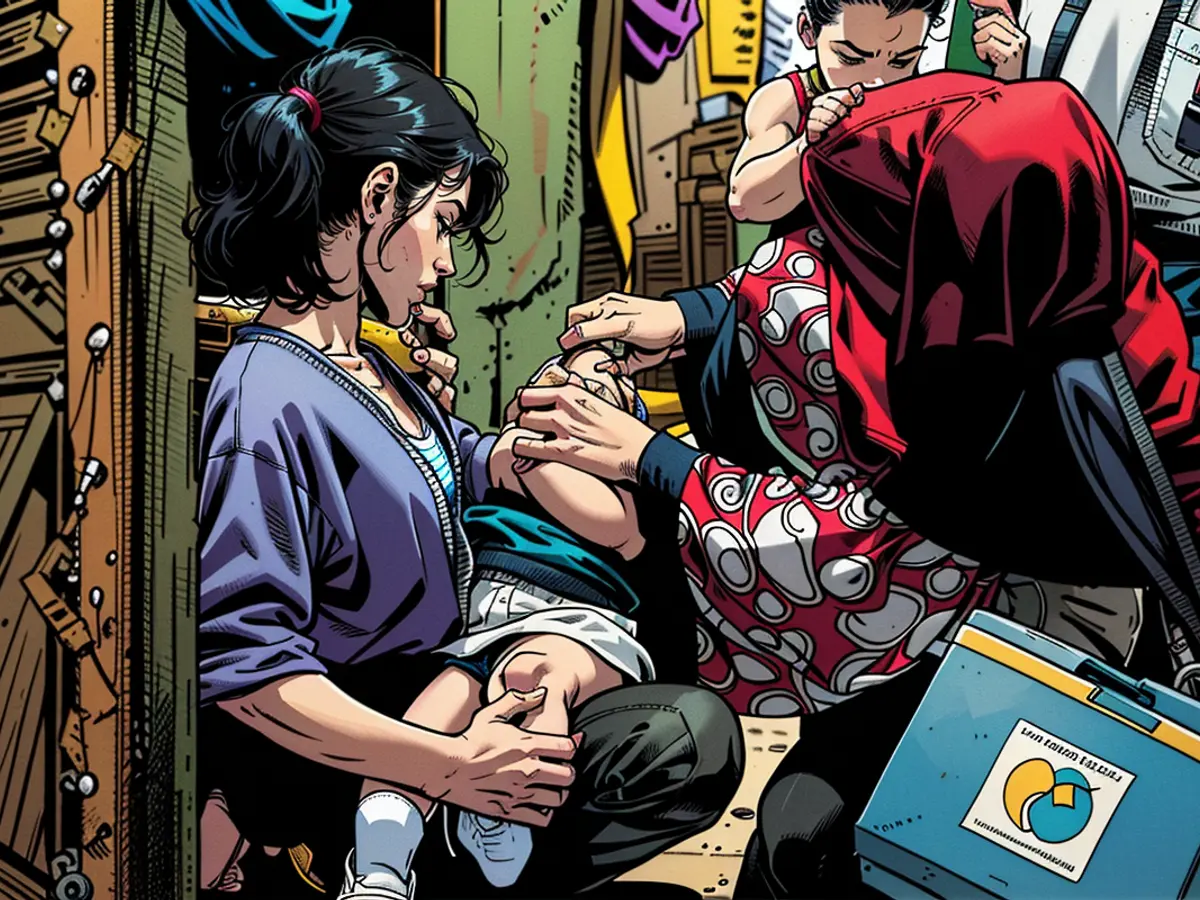In Pakistan, over a million children forgo polio vaccine doses, contributing to a surge in infections.
Pakistani authorities reported over a dozen new instances of polio infections in October, bringing the yearly total to 39. This is a significant increase compared to the six cases reported last year, when the nation seemed on the brink of eliminating the virus altogether.
Ayesha Raza, the Prime Minister's advisor on Polio Eradication in Pakistan, attributed the rise in cases to insufficient vaccination rates. She revealed that around 1 million children missed their polio vaccinations in September, exacerbating an existing immunity gap that has grown since Covid-19 disrupted immunization initiatives.
Polio is a highly contagious viral illness that primarily affects children under the age of 5. It impacts the nervous system and can lead to paralysis, respiratory problems, and even death.
The disease mainly spreads through contaminated water or food and lacks a cure. Nevertheless, it can be prevented through vaccination: worldwide polio cases have plummeted by over 99% since the 1980s due to immunization programs.
Pakistan and neighboring Afghanistan are the last two regions where polio persists as an epidemic, as identified by the World Health Organization (WHO). Moreover, the UN health agency has also warned of a polio resurgence in Gaza due to more than a year of Israeli airstrikes in the Palestinian enclave.
Vaccination campaigns in Pakistan, which is home to over 240 million people, have faced challenges. Historical distrust of foreign healthcare providers and allegations that U.S. intelligence agencies used a fake vaccination program in Abbottabad to capture Osama bin Laden in 2011 are among the factors contributing to the struggles.
Religious beliefs and a lack of awareness about the dangers of polio have also hindered public health initiatives. International NGOs and Pakistani authorities have endeavored to debunk rumors and immunize children in recent years, but misinformation continues to proliferate.
The majority of the recent polio cases in Pakistan have occurred in the southwestern Balochistan province, near the Afghan border, where parents are hesitant to vaccinate their children due to widespread misinformation and a distrust of healthcare providers.
Most of the children infected with the disease had only received partial vaccination and had missed out on some doses, according to Raza. Surveillance efforts are expected to reveal even more cases, she added.
“We’re making significant strides to address the gaps we’ve overlooked in the past,” Raza said.
The surge in polio cases in Pakistan coincides with a rise in violent attacks against vaccination clinics, which have targeted police and security officials.
Militants in Pakistan have targeted anti-polio campaigns for decades, with some asserting that vaccines are a Western plot to sterilize children.
There have been 27 attacks on polio workers in Pakistan's northwestern Khyber Pakhtunkhwa province this year, according to a CNN tally confirmed by a police source.
In September, armed militants shot dead a police officer guarding a polio vaccination site in the northwestern city of Bannu, sparking protests. Another police officer and a polio worker were killed in a shooting incident in the northwestern city of Bajaur that same month.
Aftab Kakar, a representative for the Emergency Operation Center in Balochistan, stated that protests, insecurity, and community boycotts had disrupted vaccine campaigns, resulting in a cohort of unvaccinated children who could potentially spread the virus.
Despite the recent increase in cases, Pakistani authorities remain hopeful they can stop the spread of the disease. The country is launching a nationwide polio vaccination campaign on October 28, aiming to immunize 45 million children under the age of 5.
“Polio eradication is Pakistan’s top priority,” declared Pakistan’s Polio Eradication Programme on social media.
“A unified plan with provinces aims to halt polio transmission by 2025.”
The World Health Organization (WHO) has identified Pakistan and neighboring Afghanistan as the last two regions where polio persists as an epidemic in the world. Despite facing challenges and historical distrust, Pakistan is launching a nationwide polio vaccination campaign to immunize 45 million children, showcasing the country's commitment to eradicating polio globally.








